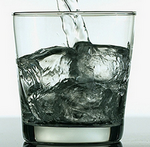
The intriguing research study by Kendall Eskine et al. was conducted among 60 undergraduates (29 of whom were female) at the Brooklyn College Psychology participant pool.
The findings could perhaps inform beverage packaging branding or design, although naturally such moves would obviously rely on the moral beliefs and feelings of a given target demographic.
The two-part study first involved exploring moral judgments, before a taste-perception survey was conducted together with a market research/consumer interest company.
Transgression tales
Dr. Eskine from Loyola University New Orleans and his team randomly assigned groups of 20 participants to groups where they read, variously, two ‘vignettes’ each relating to moral transgressions virtues or control scenarios.
The moral transgression tales related to a bribe-accepting congressman and a shoplifter, while moral vignettes described a generous gift to a homeless family and a Good Samaritan stopping a mugging.
Subjects rated the tales on a scale (morally bad to morally good) with various points in between; these marks were then converted into a points score from 0-100, with lower scores indicating harsher moral judgments.
All subjects were then given the same beverage (one part diluted blue Gatorade, nine parts water) in a single-teaspoon dose, with the identity of the purposely bland solution not disclosed or detected by participants.
They were told to rate the beverage on a continuum from ‘very disgusting’ to ‘very delicious’, and scored from 0-100, with lower scores indicating stronger perceptual disgust, bitterness and sweetness perception were also assessed.
Statistically significant results showed subjects perceived the beverage to be more disgusting in the ‘transgression’ condition, Eskine et al. found, and more delicious in the virtue condition.
The God Delusion incites Christian distaste…
However, sweetness and bitterness ratings for the beverage did not change, suggesting that disgust (not bitterness per se) was related to moral transgressions, Eskine et al. wrote.
A regression was also performed to test whether taste perception could be predicted by moral judgment, with results showing that 46.2% of taste perception variance in taste perception was accounted for by participant’s moral judgments.
According to the research team: “These findings not only bolster the link between moral transgressions and embodied states of disgust, but also show that the opposite is true – moral virtue is connected to embodied gustatory advice, which appears to be a novel finding in reality research.”
Eskine et al. cited a 2011 study by Ritter and Preston that found Christians were more likely to rate a neutral-tasting beverage (a lemon water solution) as disgusting after copying a passage from Richard Dawkins’ The God Delusion or (more controversially) The Koran as against a control text.
The study supplied further evidence – backed by recent research in aesthetics – that affective perceptual states can influence aesthetic judgments, the psychologists wrote.





